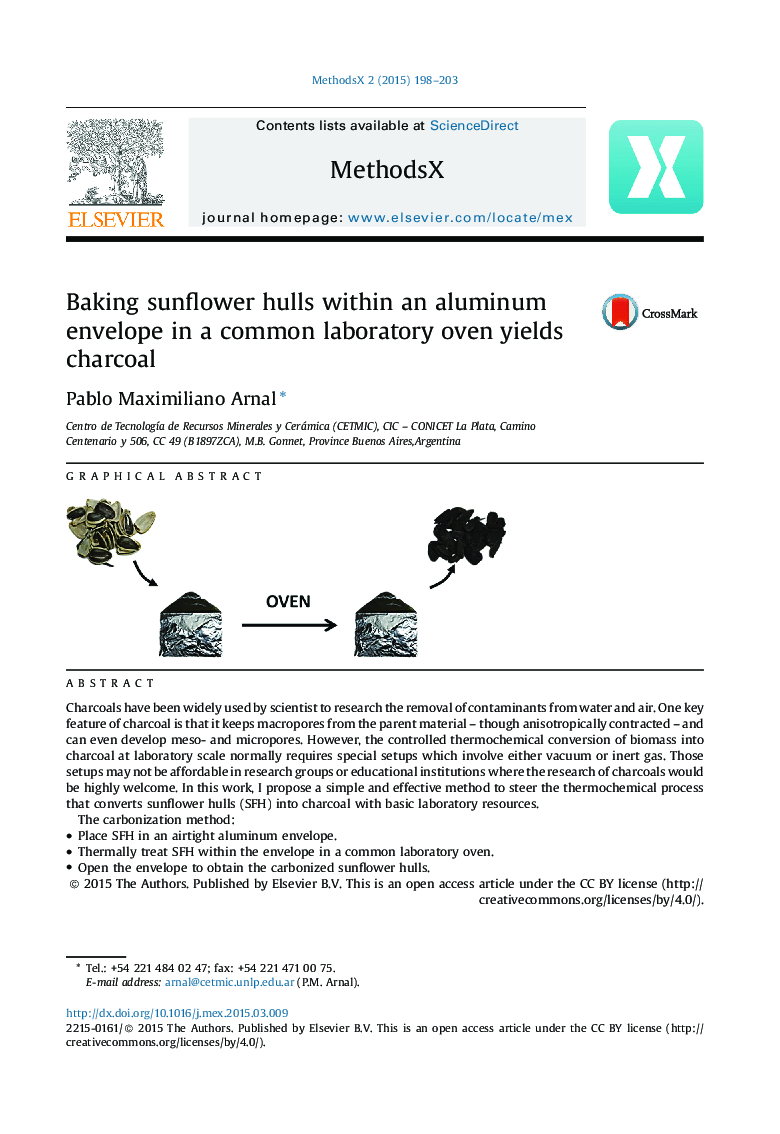| کد مقاله | کد نشریه | سال انتشار | مقاله انگلیسی | نسخه تمام متن |
|---|---|---|---|---|
| 2058776 | 1543968 | 2015 | 6 صفحه PDF | دانلود رایگان |
Charcoals have been widely used by scientist to research the removal of contaminants from water and air. One key feature of charcoal is that it keeps macropores from the parent material – though anisotropically contracted – and can even develop meso- and micropores. However, the controlled thermochemical conversion of biomass into charcoal at laboratory scale normally requires special setups which involve either vacuum or inert gas. Those setups may not be affordable in research groups or educational institutions where the research of charcoals would be highly welcome. In this work, I propose a simple and effective method to steer the thermochemical process that converts sunflower hulls (SFH) into charcoal with basic laboratory resources.The carbonization method:
• Place SFH in an airtight aluminum envelope.
• Thermally treat SFH within the envelope in a common laboratory oven.
• Open the envelope to obtain the carbonized sunflower hulls.
Figure optionsDownload as PowerPoint slide
Journal: MethodsX - Volume 2, 2015, Pages 198–203
